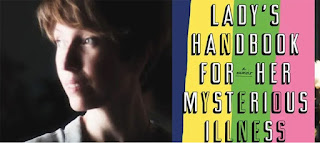Sarah Ramey’s book, The Lady’s Handbook for Her Mysterious Illness (2020), was an eye-opener for me. I asked Chat-GPT for a precise of WOMI. Here it is, as I edited it.
"WOMI: Woman with Mysterious Illness" while not a defined entity, refers to the phenomenon where women experience undiagnosed or misdiagnosed medical conditions. This is an issue many women face, often due to biases in medical research and practice.
Synopsis: Many women suffer from health issues that are not easily diagnosed, sometimes leading to prolonged periods of uncertainty and inadequate care. These mysterious illnesses can include chronic fatigue syndrome, fibromyalgia, autoimmune disorders, and more, which are often under-researched or not fully understood. The experience of dealing with these conditions can be frustrating and emotionally taxing for both patients and healthcare providers. A smaller number of these patients are Men with Mysterious Illness (MOMI).
Greater awareness and more dedicated research into women's specific health concerns can lead to better understanding and treatment options.
1. Education and Training: By educating healthcare providers about potential biases and the need for a more holistic approach, care can be improved.
2. Listening to Patients: Encouraging open communication and actively listening to women's experiences can help build trust and lead to more accurate diagnoses.
3. Advocacy: Supporting initiatives that advocate for women's health can lead to policy changes and increased funding for research.
4. Empathy and Support: Understanding the emotional impact on patients can foster empathy and provide the support they need during their health journey.
For Patients: Understanding WOMI can empower women to advocate for themselves, seek second opinions, and gain more control over their healthcare journey. -
For Providers: Understanding the concept of WOMI offers an opportunity to improve diagnostic accuracy, cultivate better patient relationships, and provide personalized care.
By fostering a more inclusive and attentive healthcare environment, both patients and providers can benefit from a more effective and compassionate approach to dealing with mysterious illnesses.
[I took notes on The Lady’s Handbook for Her Mysterious Illness and will share the pdf with anyone who is interested. DJE]







